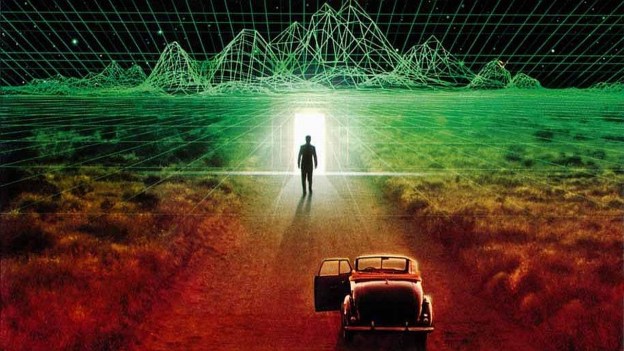One of the themes of the Auran Chronicles is regarding the nature of reality. It postulates the question – “what if everything we knew about reality was a lie?”
The key concept in Auran Chronicles is that reality is basically the sum of our collective minds, controlled by a mysterious force known as the Consensus. Everyday folks like you and me have no conscious control over the Consensus (and hence, reality) but our subconscious minds serve to enforce the rules about the world we live in. That is why the magi in the series cannot do crazy things such as turning a building to sand or a person into a frog. We know this can’t happen, and so the magi are forced to use more subtle ways of affecting reality.
This question about the nature of reality is not new, and is something I’ve had a layman’s interest in for many years. There are many schools of thought out there about quantum physics, the role of the observer and so on (see Schrodinger’s Cat), but today I wanted to mention The Simulation Argument.
Specifically, the Simulation Argument has a simple hypothesis (my own words) –
“If you can assume that at some point our technology will advance to the stage that we can create simulated realities that are indistinguishable from our own reality, then it’s easy to assume that this simulated reality could create its own simulated reality, and so forth and so forth. The end result being a series of nested simulated realities with no one knowing which is the “real” one.”
There’re several documents on this on the web, many of them very deep and detailed, but the one shown here is a good summary, courtesy of Nick Bostrom.
It’s a mind-boggling concept, and books and movies have touched upon this idea over the years, the Matrix being one of the most obvious, but with many others out there too.
The scary thing is we could be in one right now, and not even know about it. How would we differentiate the real world from the virtual world? Even looking at our own reality, and the way it does not like to be observed directly at the subatomic level, makes me wonder if we are in fact in a simulation so advanced that we have no way of telling.
What do you think? It’s a metaphysical head-scratcher, but in theory it is one that could be tested by science in the future, and has been looked at already. Could people traverse between realities? Could we have people here, right now, who come from a reality above ours? Perhaps there’s some kind of organisation(s) from high above ours that can visit at will?
I fully intend to write a full length novel covering such a concept in the future. It’s a fascinating idea, and one that lends itself to some really mind-bending tales. But in the meantime, if you fancy a short version of a piece of fiction covering such a concept, sign up for my newsletter here, and receive a free copy of the Shattered Realms compilation. Cogito Ergo Sum is a story within that which speculates on the idea of what if the Large Hadron Collider found something it wasn’t mean to find…


Strangely enough, I have a short outline based on this too in one of my notebooks! Iain M Banks’s last novel, The Hydrogen Sonata, references this theory and postulates that civilised societies (such as his Culture) would feel morally obliged to let such simulations run ad infinitum. Thanks for the re-post of my blog. I’ve just bought Message Bearer – it joins a rather large pile of books clamouring for my attention right now, but I will get to it.
Excellent! Yes I’ve read some of his Culture novels before. Real, meaty Sci fi! A short story I wrote (Cogito Ergo Sum) touches upon it too, night warrant a full novel one day. Thanks for getting Message Bearer, need to get my butt in gear and finish this trilogy off!
Well done on your World Walker success, I read it recently and really enjoyed it.